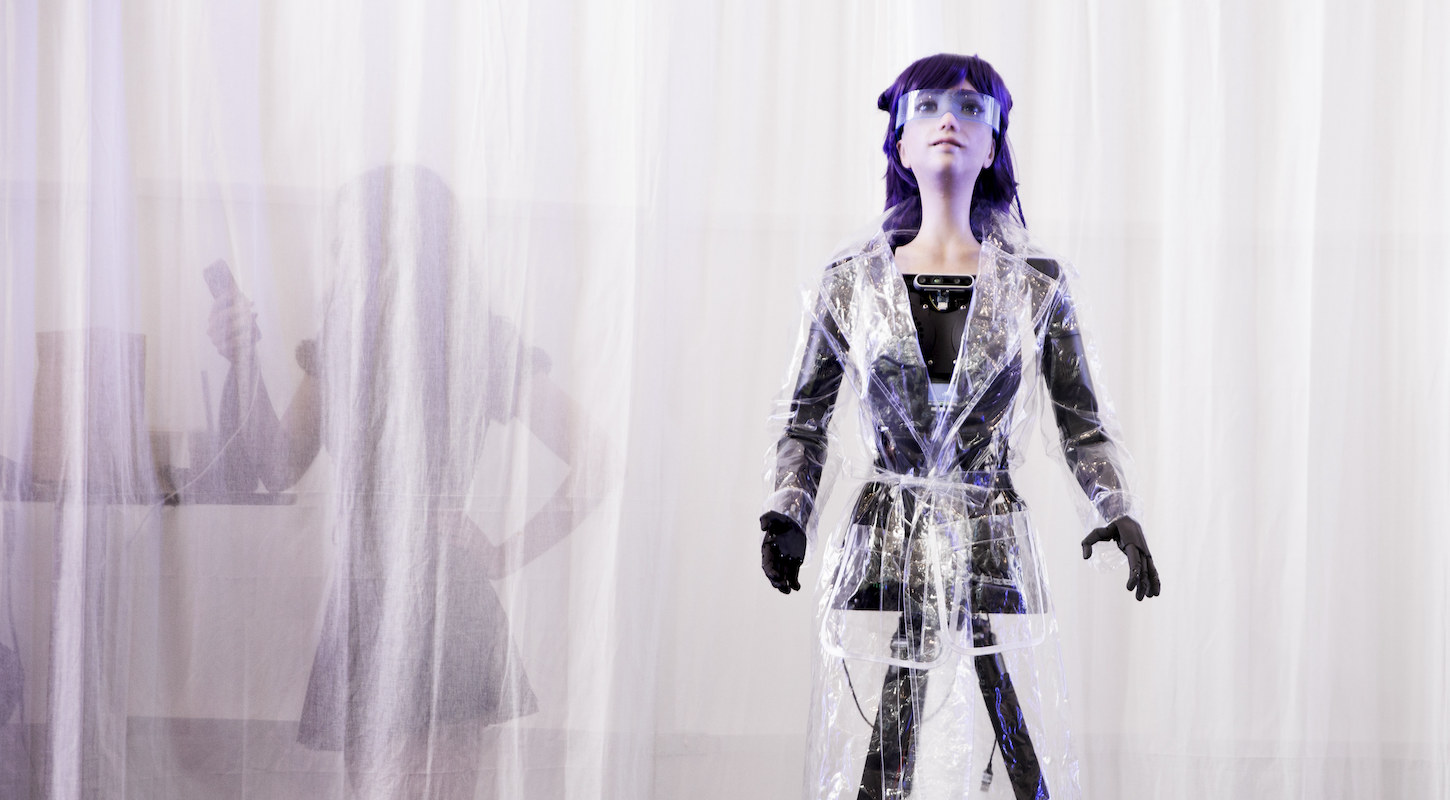Instacart, the creepy grocery surrogacy outfit that transformed the aisles of your local supermarket into a purgatorial warren of desperate gig workers, has a new plan for making that experience even worse: "smart" shopping carts, which is to say shopping carts that will perform surveillance on you while you shop, for the purpose of spitting targeted advertising at you through built-in video screens. Instacart's CEO (via Bloomberg) believes this will be "the future of grocery shopping."
The grocery store is not some hushed sanctum. It's loud and brightly lit and frequently crowded, and when you are inside of it you are surrounded on pretty much all sides by garish product packaging, promotional displays, and Mega Bargain Discount Sale signage. The grocery store is not subtle or reserved about its intentions, vis-a-vis your money. It wants to sell you things; that's the whole entire idea. So in that sense it's maybe ludicrous to complain, as I'm about to, about the addition of yet more prodding to the experience.
But the grocery store by its nature is the endpoint of the whole advertising deal. It's the place where the effects of all the other advertising for grocery-store-type goods you're bombarded with as a condition of American life—including the literal packaging of the products all around you—are supposed to express themselves. It is not like a car dealership, because nobody goes to the grocery store to mill around and consider the possibility that they will test-drive a box of cereal. Nobody is there just in case they can get a good trade-in deal on their aging gallon of orange juice. When you are in the grocery store, pushing a cart around the grocery store, you are already buying the shit. You do not need to be persuaded to buy the shit. Buying the shit is what brought you in the door.
Business Insider's blog about the smart carts quotes an Instacart press release touting the usefulness of the smart carts' targeted advertising capabilities. The example it gives is this: "For example, if a customer adds ice cream cones, they might see a complementary item recommendation, like Dreyer's ice cream." This is indeed illustrative, though perhaps not in the way that the press release intends. Who the fuck is buying ice cream cones without having already considered whether they might also like to buy some ice cream?
This is one of those new technologies that's useful primarily as a viewfinder on a dismal present and a future determined to be even more miserable. Nobody anywhere will like the smart carts. Nobody, anywhere, will find them not-obnoxious. Everybody who does more than a couple of moments of thinking about it will be horrified by the idea of humanity digging gigantic devastating holes in the ailing planet and mining out its contents for the purpose of putting tablet computers onto grocery carts so that they can perform a service repulsive to literally everyone. Nobody—nobody nobody nobody!—wants to live in a society characterized by inescapable omnipresent advertising for consumer products; no one yet born has yearned to have video advertisements take up ever more of their field of vision.
Does any of that bear in the least on the question of whether the smart carts will come to be a familiar presence in American life? Of course not. It's a question American life itself has made ridiculous.
Advertising is understood to work. It influences consumer decisions, regardless of how anybody feels about being advertised to. Somewhere, some people are doing some math. If placing advertisements on the smart cart screen can be expected to generate sales in an amount greater than the cost of producing and placing those advertisements, then corporations will pay to produce and place those advertisements. If building surveillance technology and video displays onto grocery carts can be expected to generate more money in ad sales than the cost of putting all that stuff on the carts, then the carts will proliferate. The question of whether any actual grocery shopper, anywhere in the world, likes or wants (or simply isn't some amount of grossed-out by) these smart carts is wholly immaterial to any of this reckoning. It's like—it is very nearly exactly like—asking whether the buttons on a remote control like being pushed.
Instacart's main business, for now anyway, remains connecting people who want groceries but do not want to go grocery shopping with other people who will do that grocery shopping for them. This conjures particularly bleak imagery: A smart cart surveilling a series of grocery selections, analyzing them, and blaring the resulting personalized ad into the gray and haggard face of a broke gig-shopper who is dutifully following somebody else's shopping list; it would make that gig-shopper something like a human shield, but for intrusive advertising instead of bullets. A grocery store filled with sweaty, harried Instacart workers absorbing remote strangers' personalized algorithmic admonishments to stock up on puffed rice and diarrhea medicine. A product so abstracted from any usefulness to any actual person that all it can be said to actually do is make life more annoying, and some number of tech-industry creeps somewhat richer.
How long before the smart carts incorporate ChatGPT and talk to you while you shop? I am gonna cuss those suckers out so friggin' bad, man.






